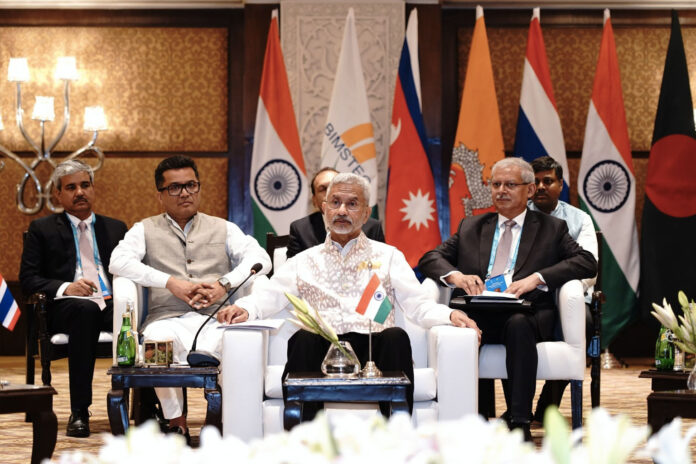In a significant development, the first BIMSTEC Foreign Ministers’ retreat convened in New Delhi on July 11, marking a key moment for regional cooperation as outlined by the BIMSTEC Charter that came into effect on May 20 this year. The retreat, hosted by India’s External Affairs Minister S. Jaishankar, addressed pressing regional challenges, particularly the tumultuous situation in Myanmar which is impacting regional stability and cooperation.
Addressing the ministers, Jaishankar highlighted the need for the seven-member Bay of Bengal Initiative for Multi-Sectoral Technical and Economic Cooperation (BIMSTEC) to devise internal solutions to the crises they face. “Global and regional developments also make it imperative that we find more solutions among ourselves,” Jaishankar said. He pointed out the importance of revitalizing long-standing goals such as capacity building and economic cooperation.
The urgency of these discussions is underscored by recent setbacks faced by Myanmar’s military junta, including losing control of Naungcho — a key town along the trade route to China — to the Ta’ang National Liberation Army. This ongoing instability poses a significant threat to several developmental and connectivity projects crucial for fostering ties among BIMSTEC countries, including Nepal, Bhutan, India, Bangladesh, Myanmar, and Thailand.
Following bilateral talks with Myanmar’s Deputy Prime Minister and Foreign Minister U Than Swe, Jaishankar said, “Our discussions focused on the connectivity projects, so crucial for the future of BIMSTEC. Also exchanged views on border stability and humanitarian assistance.” However, the Ministry of External Affairs has yet to clarify India’s stance on extending humanitarian assistance to the civilian population inside Myanmar, as aid has so far been limited to displaced populations and military personnel seeking refuge in Mizoram.
The retreat saw participation from Foreign Ministers Hasan Mahmood of Bangladesh, Maris Sangiampongsa of Thailand, Than Swe of Myanmar, and D.N. Dhungyel of Bhutan. Notably absent were the Foreign Ministers from Nepal and Sri Lanka. Jaishankar’s discussions also included issues of transnational crimes, emphasizing that “Countering cyber, narcotics, and illegal arms trafficking is a shared priority of all three nations. We will continue to cooperate in that regard.”
This first BIMSTEC retreat underscores the region’s push towards self-reliance and collective action in addressing complex challenges, setting a hopeful precedent for future diplomatic and economic cooperation.










